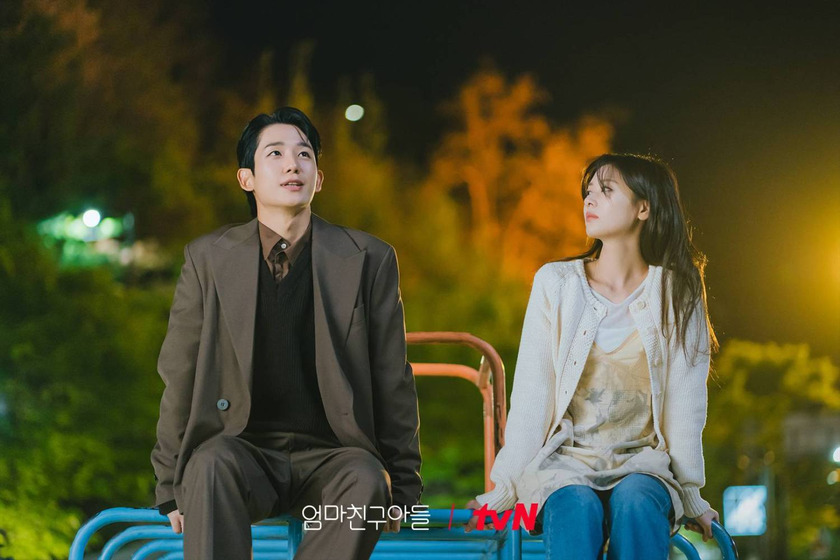The “childhood friends” or “bickering couple” trope is familiar to K-dramas. However, when applied at the right time, this familiar formula creates a positive impact on viewers. The main couple in “Love Next Door” is a prime example, as these childhood friends constantly bicker every time they meet, with neither willing to back down.
A Lesson for Adults: Learning to Find Happiness in Imperfection
Starting with a journey back to one’s roots, “Love Next Door” paints an emotional contrast between the luxurious, glamorous life in the US and the peaceful warmth of home. Seok-ryu, despite her enormous success abroad, feels an emptiness inside. Loneliness, fierce competition, and invisible pressures in modern society make her realize that material wealth cannot bring true happiness.
The male lead, Choi Seung-hyo, also faces many challenges while starting his own company. With no capital and no clients, this talented architect with numerous awards is struggling on his path to achieve his dreams. Seok-ryu’s mother is both pitiable and somewhat to blame, as she placed all her hopes and dreams on her daughter, only to collapse emotionally when she learned that Seok-ryu had lost her job and called off her engagement.
Many viewers sympathize with Seok-ryu, who lived and worked like a machine just to meet her parents’ expectations. Her words during an argument struck a chord with many: “Why do I always have to be your pride? Can’t I just be your daughter?”
Sometimes, parents’ expectations create pressure on their children to always succeed. When the exhaustion reaches its peak, both parents and children are hurt by their selfish thoughts. Seok-ryu’s timely expression of her feelings and her mother’s understanding opened up a way for both of them to heal. After all, family remains the place to return to and heal from life’s wounds.
When Healing Becomes a “Hot Trend”
The word “healing” refers to the trend of seeking recovery, emotional, and physical healing. This “healing” trend has been embraced, particularly as city dwellers feel overwhelmed by immense pressures.
Before the healing wave became a global trend post-pandemic, series like “Reply”, “When the Camellia Blooms”, and “Dear My Friends” pioneered deep emotional connections with audiences. The success of these shows demonstrates the enduring appeal of dramas that focus on everyday life, human relationships, and core values.
Unlike other genres that often emphasize tension or escapism, healing dramas highlight overcoming life’s challenges and finding peace within oneself and the community one belongs to.
When the young flock to cities, drawn by bright neon lights and the fast-paced hustle for opportunities and dreams, it can also lead to feeling lost and alone. It is only upon returning to their hometowns, among vast fields and calm rivers, that they rediscover peace of mind. There, they are embraced by family love, share simple village stories, and experience the true meaning of life.
Although healing films do not shy away from depicting life’s difficulties, they are known for their positive and hopeful messages. The characters’ journeys toward peace or achieving their dreams inspire a sense of optimism and encourage viewers to believe in miracles in their own lives.
Another important aspect of healing dramas is the soothing atmosphere and scenery they often depict. The poetic, rustic settings – like the streets of Hyereung-dong, the village of Hong Jin, Jeju Island, or Ssangmundong neighborhood in “Reply” – contrast sharply with the hectic, bustling city life. These tranquil, rural landscapes and beautiful natural settings serve as a rejuvenating tonic for the soul, providing mental relief from daily stress and creating a space where viewers can relax and reflect.
According to Dr. Dang Thieu Ngan, a Korean culture expert, “Urban life in all major cities worldwide is very stressful. Seoul, in particular, is extremely pressured, especially with big companies and corporations setting strict demands on time and work efficiency for their employees. When life and work become harsh, with high competition and increasing stress, films that depict romantic love and peaceful lives help balance people’s psyches in modern Korean society.”
